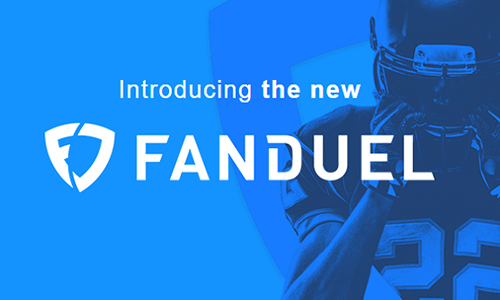FanDuel Exec Has Delusional View of DFS, Poker
FanDuel Chief Financial Officer Matt King was interviewed by PBS’s “Frontline” in September about, naturally, his company and the daily fantasy sports (DFS) industry. The transcript of the interview was posted on the “Frontline” website this week and oh boy, is it a doozy. It starts out smoothly enough, with a discussion about the background of the company and DFS in general, but about halfway through it takes a turn that has the poker community collectively facepalming.
When the interview gets to the topic of the intersection of DFS and gambling, King becomes a Marco Rubio-like talking-points bot, tossing out corporate euphemisms as if that is going to fool your typical PBS viewer/reader. Let’s start with one of the tamer portions of the interview, one in which King is not actually wrong, but instead unable to get to the point without circuitous MBA-speak:
Frontline: How does FanDuel make its money?
King: We make our money as any other marketplace business does. We match effectively buyers and sellers together. What we are is similar to eBay. Where their role was to facilitate the auction of goods, our role is to frankly bring people together that want to compete in the same game.
And so the way we make our money is when we construct a tournament or contest, there will be a certain number of entry fees and then a certain number amount of prizes, and then there’s a spread between those two numbers, and our revenue represents the spread between those two numbers.
Why in the hell can’t he just say, “We take a fee from every contest?” It’s honest, it’s simple, it’s obvious, and those who did not already know how DFS worked wouldn’t have a problem with it. FanDuel has to make money somehow, so obviously it is going to charge people to play. Enough of this matching buyers and sellers and spreads between numbers bullshit. Just say you charge a fee. Done.
That answer should be an extremely dubious sign for when King has to answer more difficult questions. Moving on:
Frontline: … Why should casinos and sports books be subjected to oversight and regulation by the government and fantasy sports somehow escapes all that.
King: Fantasy sports has always been recognized to play a different role. When you talk to people about fantasy sports, it’s a social activity. It’s about competing with their friends … but we are clearly very focused on making sure that everybody in the industry operates with the highest degree of integrity.
Ok. I mean, casino gambling is a social activity, too. I have never bought into the argument that because things have traditionally been one way that they have to stay that way. So just because fantasy sports have been viewed as “social” and not “gambling,” doesn’t mean things can’t change, especially with the advent of DFS. But, yeah sure, I guess. Go on…
Frontline: So we are talking about self-regulation here.
King: Mm hmm.
Frontline: And you are content that that’s working well.
King: It is.
I am a fair main, so I can buy that to an extent. Overall, self-regulation has been alright for DFS so far, but it was for online poker, too. Until it wasn’t. I can see where King is going with this, though, and it is not a good place. It is a place filled devoid of self-awareness and filled with flavorless goo.
Frontline: So you see no reason for fantasy sports to be regulated by some government agency?
King: Our product is all about entertainment value.
*cough* bullshit *cough*
Guess what? Gambling is all about entertainment value.
Frontline: Are you aware of any young people who have developed gambling problems by playing fantasy sports?
King: No.
Frontline: None?
King: No.
Good job limiting your responses to single words. You wouldn’t want to spiral into the abyss of admitting that people, young or otherwise, might possibly, somewhere, lose more money they can afford playing DFS. Hell, even by saying, “No,” you might have already said too much.
Frontline: On a personal level do you believe gambling should be legalized in the United States?
King: I don’t have an opinion on that.
Frontline: Really?
King: Nope.
Frontline: Why not?
King: Because I’m not a gambler, and it’s not necessarily something that I have a view on.
*cough* *cough* BULL. SHIT. *cough* OH MY GOD I’M DYING *cough*
There are a lot of things I don’t do, but I certainly have an opinion on them. You are 100 percent lying here because heaven forbid the words DFS and gambling are put into the same sentence together. Never mind that your company applied for a gambling license in the UK.
Frontline: So you don’t view what you do here at Fan Duel as gambling.
King: No.
Frontline: That’s a word that isn’t used very much around here I take it.
King: Nope. Because we are, every time that you talk to our users, what comes through loud and clear is the fact that we are an entertainment product. …
ENTERTAINMENT PRODUCT ENTERTAINMENT PRODUCT ENTERTAINMENT PRODUCT
Frontline: You know that there are people out there that do view what you are doing as gambling.
King: Yes, there are certainly people who take that view.
Frontline: Because it seems the common definition is that if you are putting at risk something of value, you can win or you can lose. That would seem to me the definition of gambling, and that’s what’s happening with FanDuel or with DraftKings or with many of the others that are engaged in fantasy sports.
King: Arguably that could be any spelling bee that you are in either.
Yes, Mr. King. Life is gambling. But let’s dive deeper into your delusion, shall we?
Frontline: Well, it could be poker. Poker is a game of skill, right?
King: No poker is not.

Frontline: So you don’t think winning at poker involves skill?
King: There is a lot of academic research on this, what’s the skill versus luck kind of spectrum. The reality is within poker, every time you shuffle the deck, it creates an element of luck that trumps it basically to being much more a chance-dominated game than a skill-dominated game. If you look at our data, the players that are good, are frankly consistently good. It is truly a game of skill. … Just like football or basketball. The more you practice, the better that you get. Many of the forms of regulated gambling are actively constructed so they are games of chance, and that is a very, very different experience than a game of skill, which is what fantasy clearly is.
Oh dear, where do I start. Look, I’m not going to get into the whole luck versus skill argument. We all know that poker has elements of both, but in the long-run, skill overcomes luck. DFS also involves both elements, but in my opinion, at least in the way the games are structured right now, luck is more of a factor than is skill. And I love daily fantasy sports. I hope the DFS sites stay alive and we can all enjoy playing. I even consider myself a fairly knowledgeable player and profited $100 this season. But come on, it’s gambling, just like poker is gambling.
King thinks DFS is more of a skill game than poker (he is wrong), but he actually described poker above when he said that there is a set of consistently good players and that the more one practices, the better one gets. That’s the same as poker!
And no, DFS is not a game of skill just like football or basketball. That’s just insulting to our intelligence.
For King to downplay the role of skill in poker was a terrible move, considering the number of high volume players who come from the poker world and considering that several DFS executives and top-level employees have poker backgrounds. It shows that he either has no knowledge of what poker and DFS are really all about or, more likely, that he is so adamant in defending his precious DFS and separating it from gambling that he will say anything, including obvious untruths, to try to win his argument.



















COMMENTS